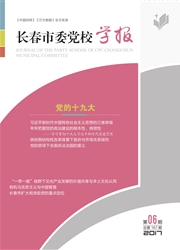

 中文摘要:
中文摘要:
基于一个包含财富异质性家户的动态新凯恩斯主义模型, 考察了个税及其累进性的变动对于中国收入差距的影响。 与已有的采用单方程计量的研究类似, 文章全样本仿真的结果表明, 个税并未扭转我国收入差距不断扩大的趋势。 由于单方程计量方法与全样本仿真无法考察政策机制的改变所引起的预期等因素的变化对于主要经济变量的影响, 采用子样本反事实分析法考察了 1997 至 2005 年、 2006 至 2010 年以及 2011 年之后等三个不同子样本期个税累进性的提高对于中国收入差距的影响, 研究发现尽管个税无法扭转收入差距扩大的趋势, 但是个税累进性的提高缓和了中国收入差距扩大的程度。 进而尝试提出了相应的改善收入分配的政策建议。
 英文摘要:
英文摘要:
This paper, based on a new and dynamic Keynesian model of wealth heterogeneous households, investigates the effect of personal income tax and its progressivity on China's income gap. Just like the research employing single equation method, the result of total sample simulation shows that personal income tax cannot control the amplification of China's income gap. Since the single equation method and total sample simulation cannot test whether the predicted factors caused by the change of the policy mechanism have impact on the main economic variables, the paper uses sub-sample counterfactual analysis to study if the increase of personal income tax progressivity in 3 periods of 1997-2005, 2006-2010 and after 2011 influences China's income gap, finds that though personal income tax cannot turn round the amplification of China's income gap, the increase of personal income tax progressivity softens the amplification of China's income gap, and finally puts forth some policy recommendations for improving the income distribution.
 同期刊论文项目
同期刊论文项目
 同项目期刊论文
同项目期刊论文
 期刊信息
期刊信息
